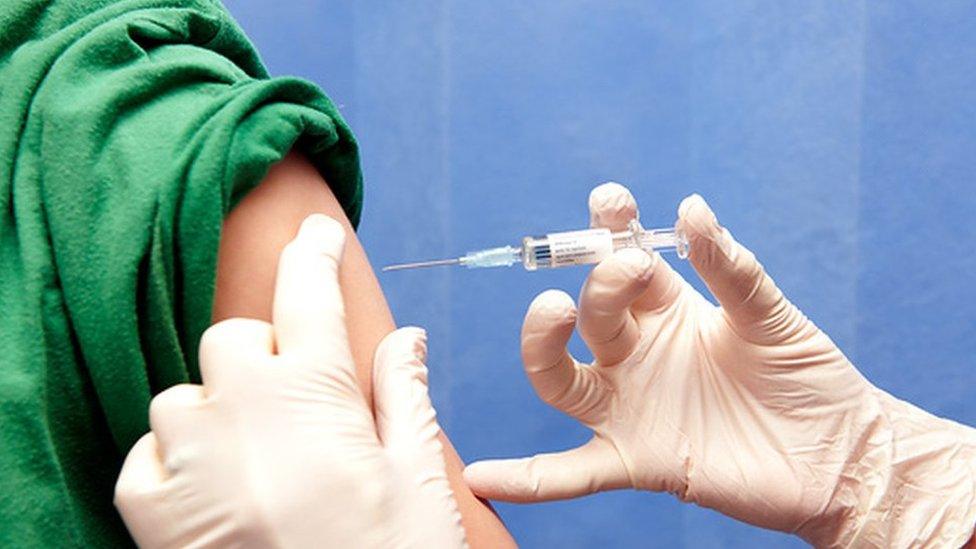Mumps: Hundreds of cases after Nottingham student outbreak
- Published
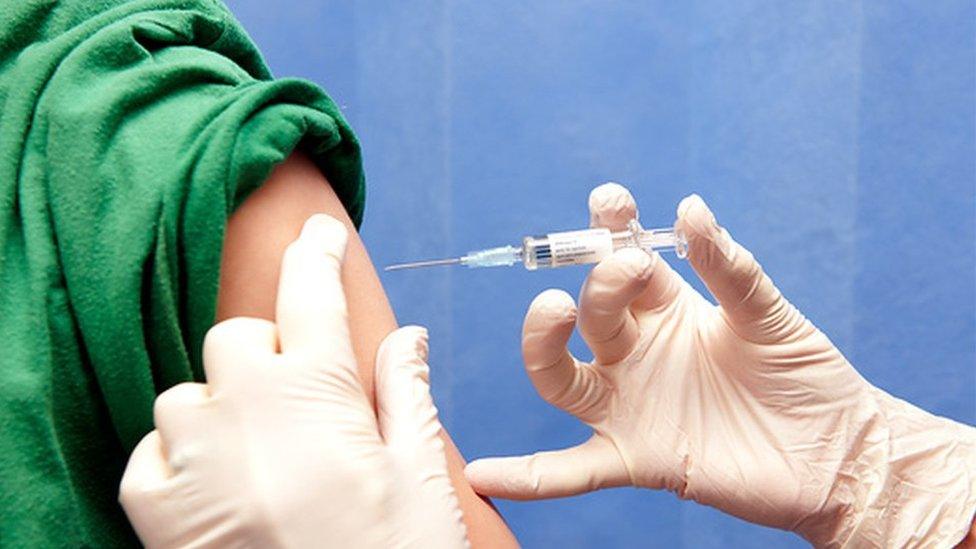
Students have been encouraged to make sure they have had two doses of the MMR jab
There were more than 300 cases of mumps across the East Midlands following an outbreak of the virus at two universities earlier this year, it has been confirmed.
Dozens of students fell ill with mumps at Nottingham Trent University and the University of Nottingham.
A total of 40 cases had been confirmed, and 223 cases suspected, by March.
Now Public Health England (PHE) has confirmed 306 cases of mumps across the East Midlands between April and June.
A total of 2,028 cases of mumps were confirmed across England during the same 2019 period.
That is up from 795 cases confirmed in England during the previous quarter, continuing the increase seen at the start of the year.
The region's cases alone account for 15% of the country's total.
Public Health England (PHE) and both universities have urged students to get vaccinated ahead of the new term.

'Extreme pain'
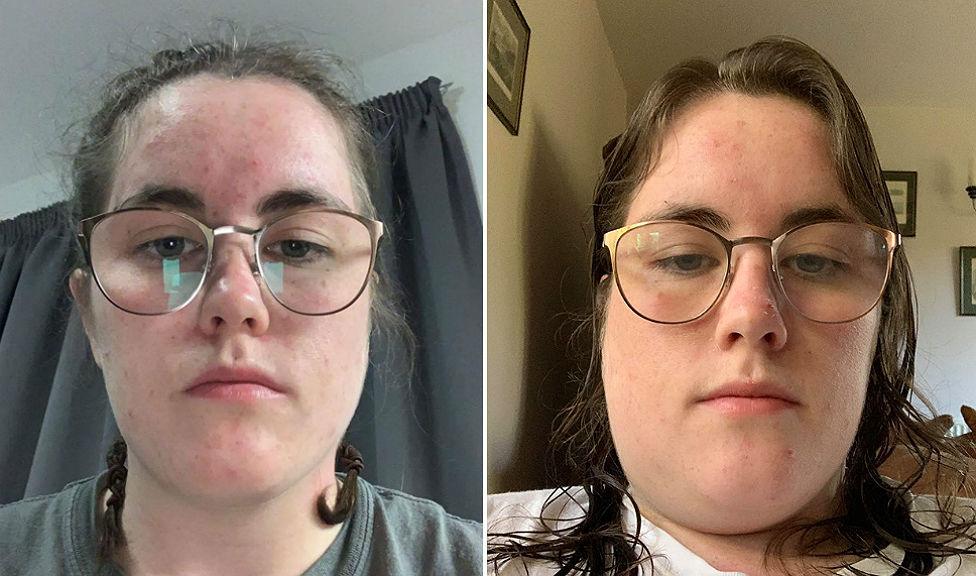
Nina Elizabeth said the first picture (left) was when her face started to swell and the second was when it was at its worst
Nina Elizabeth, 20, was on a teaching placement in Nottingham as part of her degree when she became unwell.
"I started feeling ill with an aching jaw I thought it was just from chewing," she said.
"My flat mate said she could see swelling and we jokingly said 'mumps', [but] in the morning I woke up with extreme pain in my jaw."
After ringing 111, a doctor confirmed mumps and Nina, from south-east Wales, spent six days at home eating "soup and ice cream".
The student, who had the MMR vaccine as a child, returned to her placement when the infection had passed.
"I still felt a bit drained [but] I was quite lucky the swelling only lasted the maximum period," she said.

PHE said the rise in mumps cases was mostly driven by university students and young people aged between 15 and 34.
Dr Vanessa MacGregor, of PHE, has urged parents to check their children have had two doses of the measles, mumps and rubella (MMR) jab.
She said the figures "clearly demonstrate the need for sustained high vaccination rates".
However, protection only comes if about 88% of people have been vaccinated, according to viral vaccines expert Prof Jonathan Ball, from the University of Nottingham.
If a majority of people are vaccinated, those susceptible to the infection would benefit from "herd immunity", Prof Ball said.

'I never had the MMR vaccine'

Luke Gardner's face swelled up when he had mumps
Luke Gardner, 21, from Brixworth, Northamptonshire, was hit by rubella in 2018 and mumps in May, while at university in Nottingham.
He said his parents had not had him vaccinated as a boy due to "fears" generated by the discredited scientist and struck-off medic Andrew Wakefield., external
The doctor was behind a study that linked the MMR vaccine to autism and bowel disorders, which led to vaccination rates dropping, external to about 80% in the late 1990s and a low of 79% in 2003.
"I rang my parents up after I got rubella and said, joking around 'this is your fault'," he said.
"They wouldn't make the same decision now there's evidence how safe they are and seeing the pain I went through.
"It really was a tough time for me and my family and I was in severe pain on both occasions."
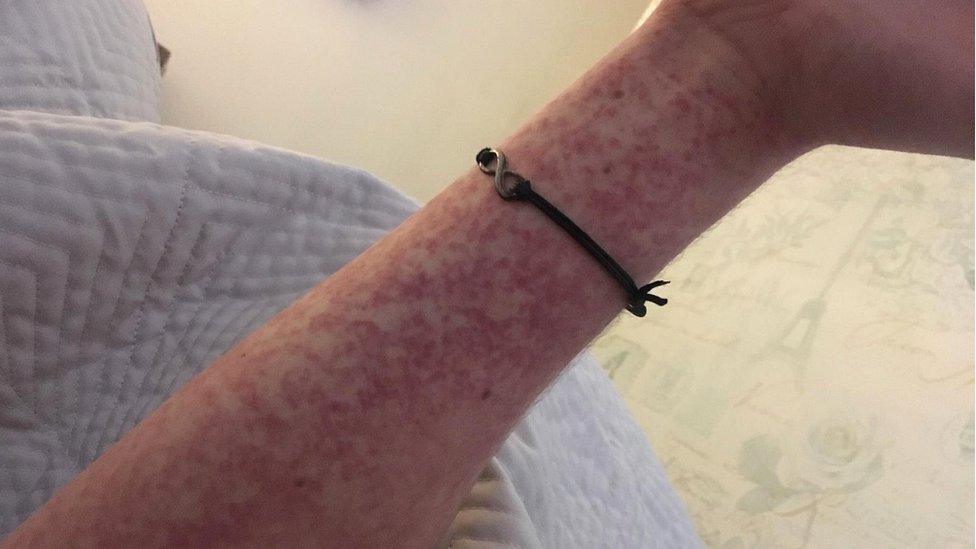
Luke Gardner had a severe rash after he contracted rubella in 2018

PHE said there were also 266 cases of measles between April and June across England, most of which were in unvaccinated individuals aged 15 years and over.
You may also be interested in:

Mumps
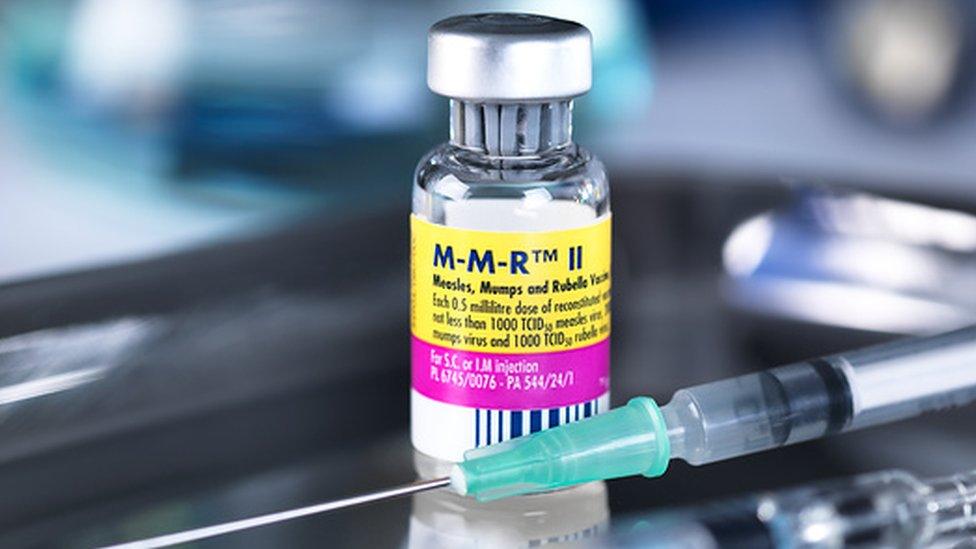
Two doses of the MMR vaccine are given to children before they start school in the UK
Mumps is a contagious viral infection which causes swelling of the parotid glands.
General symptoms can include headache, joint pain, feeling sick, tiredness, loss of appetite and a high temperature.
It is spread in the same way as colds and flu - through infected droplets of saliva that can be inhaled or picked up from surfaces and transferred into the mouth or nose.
Mumps can lead to viral meningitis if the virus moves into the outer layer of the brain, although this is rare.
Other complications include swelling of the testicles or ovaries which may affect a person's fertility.
A person is most contagious a few days before the symptoms develop and for a few days afterwards.
Source: Public Health England

Follow BBC East Midlands on Facebook, external, Twitter, external, or Instagram, external. Send your story ideas to eastmidsnews@bbc.co.uk, external.
- Published31 March 2019
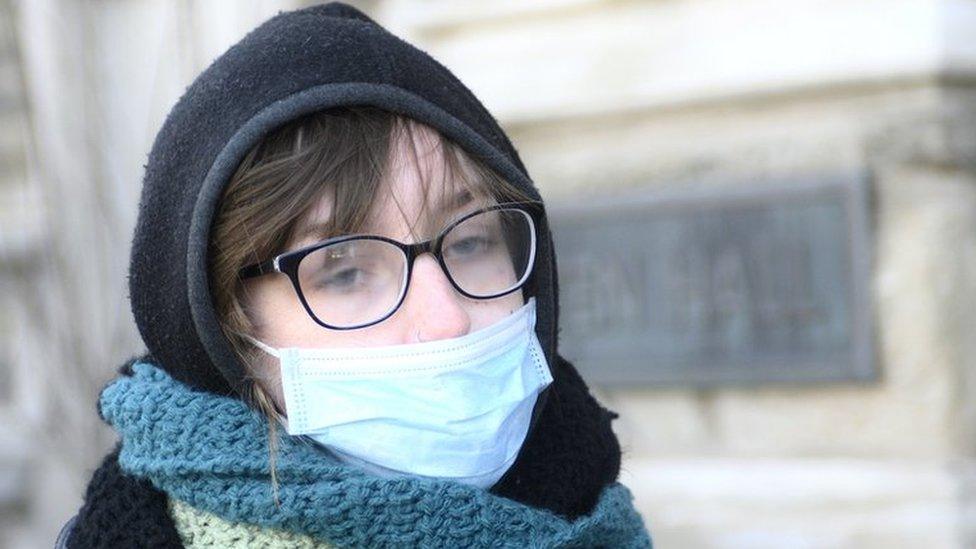
- Published26 March 2019
